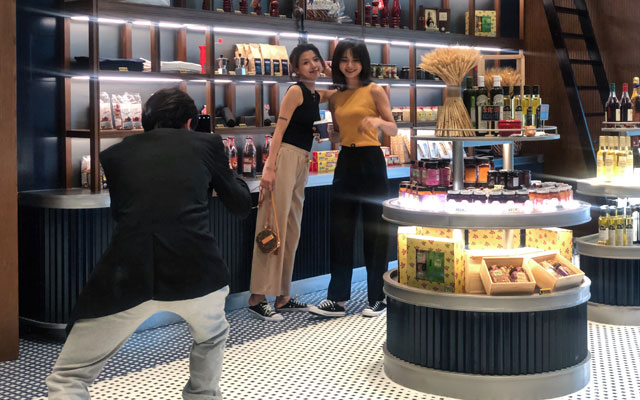As consumers remain at home and are restricted from travelling, Asian hotels are taking a different tack to maintain engagement and income
Hotels in Asia-Pacific have found themselves treading new grounds to ensure continued brand presence and revenue streams during the pandemic.
Harking back to its F&B roots, when founder Berthold Kempinski started his restaurant and wine trade in Berlin in the 19th century, Kempinski Hotels in Asia has turned to meal takeaways from its properties to keep staff active and income flowing.

Its China properties joined forces with Meituan-Dianping shopping website to offer an F&B programme that featured “carefully selected high quality dishes which would survive long-distance delivery, using improved packaging to ensure freshness”, shared Ilja Poepper, vice president sales & marketing Asia with the hotel chain.
As the virus spread across Asia, forcing governments to impose home isolation for safety, Kempinski brought the takeaway concept outside of China, to properties such as Siam Kempinski Hotel Bangkok and The Capitol Kempinski Hotel Singapore.
Shangri-La Hotel Tokyo, too, found itself having to innovate to keep the hotel top of mind. It launched The Boutique, a website selling food, bedding and other luxury items from the brand, to bring a flavour of the hotel to customers at home.
Live-streaming leads the way
In China, where online retail is as entertaining as variety shows, Kempinski Hotel Hangzhou is renting its beautiful grounds as shoot locations for Taobao’s online sellers and key opinion leaders (KOLs), a move that has earned the new property both money and positive attention among netizens.
When Kempinski Hotel Beijing Lufthansa Center tried its hand at live-stream shopping, working with Ctrip to market F&B deals, it sold 790 packages in just two hours.
In early June, Poepper co-hosted a Sina Weibo live-stream with a local KOL with 12 million followers, where they promoted Kempinski hotels in China, its Make a Travel Promise package, and the Kempinski White Glove Services’ health and safety assurance to customers. The event attracted 2.8 million viewers over two hours and “contributed to amazing branding results”, he said.
Calvin Tay, senior vice president of strategic partnerships (global travel & hotels) with Shanghai-based REST Collections, which helps hotel chains and independent properties to market in China, noted that while Chinese travel and tourism companies are adept at utilising live-stream for sales, the concept is still new to players elsewhere. He has been helping his clients take the online plunge in China since mid-June. In each live-stream session, a show host would present holiday ideas and hotels for the audience’s consideration as well as attractive early bird offers for immediate booking.
Even though travel rebound remains uncertain with the rise and fall of infections, Tay said hotels must be proactive in stimulating travel demand, and not “sit and wait” for the barriers to be lifted. “If hotels are able to come up with very attractive buy-now-stay-later deals, travellers will grab,” he said.
Lina Ang, general manager, APAC at Sojern, a digital travel marketing solutions provider, agrees that “a great deal is a good way to start”.
With limited advertising and promotion budget on hand now, Ang recommends that hotels be clear about their target audience and craft their message to give travellers the confidence to travel and visit them again.
Lasting effect
Having seen the success of using Instagram to auction off discounted rooms, F&B vouchers, and social event packages, Chandra Irawan, general manager of Atria Hotel Magelang in Indonesia, expects to maintain this sales channel even after the crisis.
The hotel has been able to sell at least 20 to 30 vouchers during each hour-long auction.
Poepper believes that the intensified digital sales and marketing efforts are part of the new normal, adding that “the future of consumption is live-streaming”. He is open to the possibility of using the channel to promote other Kempinski properties to the China market and beyond.
The digital future is not daunting, as the revolution, catalysed by the pandemic, is allowing smaller hotel chains and independent properties to be competitive without having to pay an arm and a leg, opined Ang, who said “affordable website developers and marketing partners” can easily be found these days.
“At Sojern, we support independent hotels (with our) Pay On The Stay model where a hotel pays a commission for the booking we have driven and (use our) tools…to drive direct bookings,” she added.




















